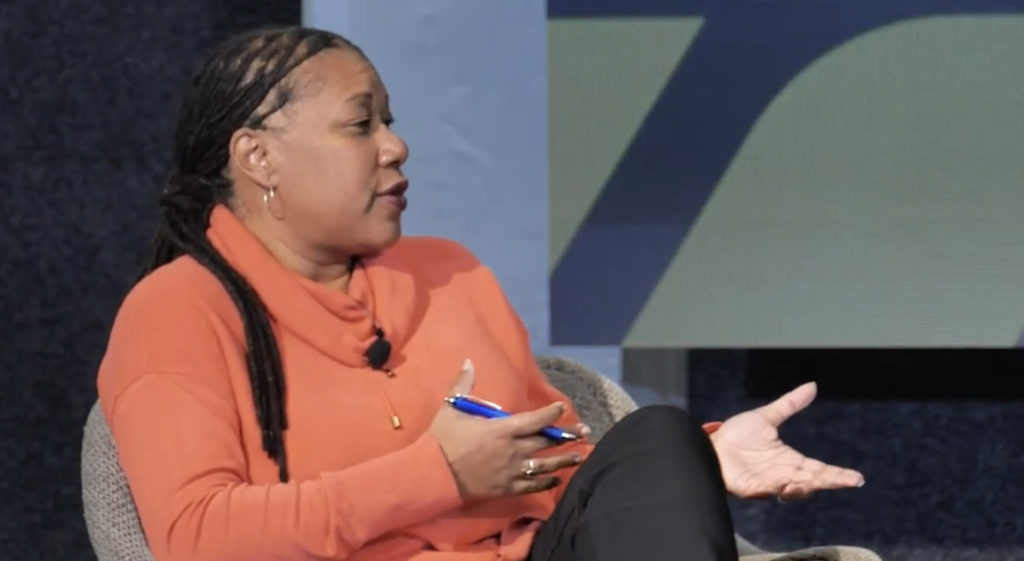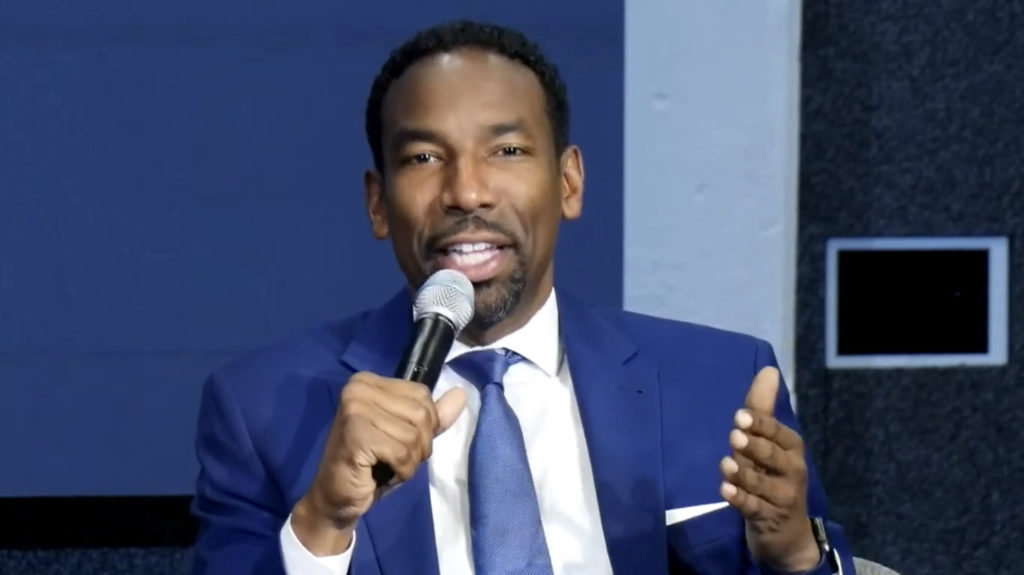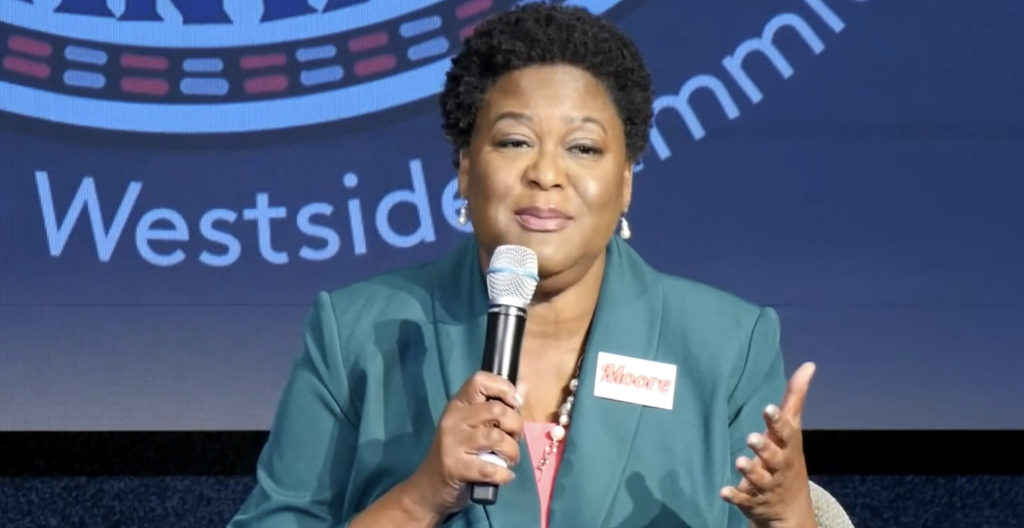November 19th Virtual Transform Westside Summit: City of Atlanta Mayoral Runoff Candidate Forum
Westside Future Fund’s November 19th Virtual Transform Westside Summit featured Atlanta mayoral runoff candidates: Felicia Moore, Atlanta City Council President; and City Councilman Andre Dickens. Rose Scott, host of “Closer Look” on Atlanta’s NPR station 90.1 FM – WABE, moderated the forum which gave Westside community members a closer look at the candidates’ proposed agendas ahead of the November 30th election. The discussion focused on a number of topics, including various aspects housing affordability in Atlanta.

Rose Scott, Host, “Closer Look” on 90.1 FM WABE
Rose Scott: “You talked about inflation…The steady increase in home prices can be directly tied to inflation, and that’s directly tied to neighborhood affordability. So as we get into this morning’s conversation, I want you both to reflect on what’s been done so far to preserve these neighborhoods, particularly on the Westside, for legacy residents—the good and the bad. Councilman Dickens, we’ll start with you.”

Andre Dickens, Atlanta City Council Member
Councilman Dickens: “Some of the good has been that we did start an anti-displacement fund—a way to preserve legacy residents here, to fight back the increase in taxes that come with property values that increase right here in Vine City and English Avenue. We’ve done some things by helping and working with Westside Future Fund, as well as Invest Atlanta. There’s been some projects and programs that I’ve been a part of where community members that have land, to be able to train them and give them information on how to build on their land to provide affordable housing and income. But there’s still so much more that we have to do. We need to really fight gentrification that has development with displacement. We have to make it development without displacing people… One of the ways is I’ve been passing out these ‘My house is not for sale’ signs that people can put on their front door, as individuals have been knocking all over the city of Atlanta. These predatory investors have been trying to take over houses and giving people low money, and then taking them and flipping them. Once you have this $100,000, you can’t find another place to buy in the city of Atlanta. So we’ve been getting Atlanta Legal Aid Society and Volunteer Lawyers [who] have been helping people stay in their home by being able to fight back against these trespassers.”
“I’ve also done senior rehab. We’ve done hundreds of houses where $30,000 was what we put into a fund to be able to fix seniors’ roofs, their HVAC units, weatherizing their windows, and making sure they have ADA handlebars as they go around the home. This is to make sure that they’re safe, warm and dry, and they can stay in that home and not pay that back… It’s basically a grant that they don’t have to pay back so they can stay in place.”
Councilman Dickens went on to propose a freeze on senior taxes across the city along with a “small cost of living increase” in order to keep legacy residents in their homes.

Felicia Moore, Atlanta City Council President
Council President Moore: “The good thing that we’ve done first and foremost is recognize we have an issue… I tell people that what’s going on is in the market. And the market is likened to the weather. You can’t stop the rain, but we can do things to sort of mitigate it. And I believe the Westside Future Fund is one of those examples on how we have been very intentional and working along with the fund in the city to try to mitigate what we see is happening in the Vine City/English Avenue area and the Westside of Atlanta… The Anti-displacement Fund was, I believe, a game changer and something that we perhaps need to replicate across the city. Most of what happens with the property values of course are related to sales. So you can be at your home and doing everything great and someone comes in and increases the value of that property down the street, and it changes the whole nature of the street. It’s very few, but we do have neighborhoods where there is still some affordability. And what I want to do as mayor… is first do a quick assessment… of all the neighborhoods and assess where they are on a spectrum. I’d like to rank them sort of from A to F. So anything that’s below average, a D or F, we know that’s where resources are needed. And that’s where we will focus our attention to make sure that those neighborhoods that are affordable, we can extend the life cycle of those particular neighborhoods—by bringing in resources to help people keep their homes up; to make sure that we have the infrastructure there—the street lights, the sidewalks, the roads—to help make the quality of life better in the neighborhoods… what I know is that each neighborhood has life cycles, and whatever we can do to increase the life cycle of those neighborhoods is really what we need to do. We can do that by being very intentional about it, looking at the property tax values. I’ve already mentioned that I want to do a legacy homeowner [either] property tax assessment freeze—which will be great, but we’d have to get our other jurisdictions to agree—and if not, we can look at our part, the city’s part of your tax bill and see if we can increase exemptions for our homeowners to try to lessen that burden.”
President Moore concluded by also proposing utility expense assistance for legacy residents regardless of whether they own a home or rent.
View to full forum below.
Atlanta runoff elections take place on Tuesday November 30th. For voting locations, click here.
